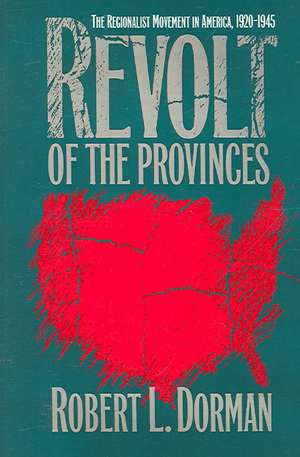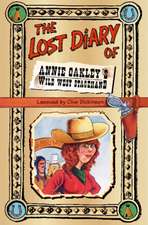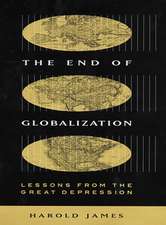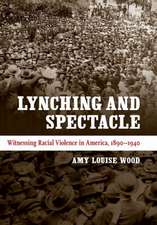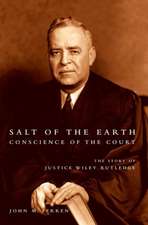Revolt of the Provinces: The Regionalist Movement in America, 1920-1945: H. Eugene and Lillian Youngs Lehman
Autor Robert L. Dormanen Limba Engleză Paperback – 31 mar 2003
Din seria H. Eugene and Lillian Youngs Lehman
-
 Preț: 181.84 lei
Preț: 181.84 lei -
 Preț: 224.94 lei
Preț: 224.94 lei -
 Preț: 208.14 lei
Preț: 208.14 lei -
 Preț: 386.45 lei
Preț: 386.45 lei -
 Preț: 269.83 lei
Preț: 269.83 lei - 15%
 Preț: 517.63 lei
Preț: 517.63 lei -
 Preț: 312.30 lei
Preț: 312.30 lei -
 Preț: 262.15 lei
Preț: 262.15 lei -
 Preț: 438.55 lei
Preț: 438.55 lei -
 Preț: 331.62 lei
Preț: 331.62 lei -
 Preț: 437.18 lei
Preț: 437.18 lei -
 Preț: 345.72 lei
Preț: 345.72 lei -
 Preț: 343.39 lei
Preț: 343.39 lei -
 Preț: 271.19 lei
Preț: 271.19 lei -
 Preț: 379.74 lei
Preț: 379.74 lei -
 Preț: 345.72 lei
Preț: 345.72 lei -
 Preț: 217.40 lei
Preț: 217.40 lei -
 Preț: 265.80 lei
Preț: 265.80 lei -
 Preț: 312.90 lei
Preț: 312.90 lei -
 Preț: 272.12 lei
Preț: 272.12 lei -
 Preț: 268.30 lei
Preț: 268.30 lei -
 Preț: 308.83 lei
Preț: 308.83 lei -
 Preț: 435.45 lei
Preț: 435.45 lei -
 Preț: 435.66 lei
Preț: 435.66 lei
Preț: 344.54 lei
Nou
Puncte Express: 517
Preț estimativ în valută:
65.93€ • 69.02$ • 54.55£
65.93€ • 69.02$ • 54.55£
Carte tipărită la comandă
Livrare economică 05-19 aprilie
Preluare comenzi: 021 569.72.76
Specificații
ISBN-13: 9780807855126
ISBN-10: 080785512X
Pagini: 376
Dimensiuni: 158 x 235 x 24 mm
Greutate: 0.56 kg
Editura: University of North Carolina Press
Seria H. Eugene and Lillian Youngs Lehman
ISBN-10: 080785512X
Pagini: 376
Dimensiuni: 158 x 235 x 24 mm
Greutate: 0.56 kg
Editura: University of North Carolina Press
Seria H. Eugene and Lillian Youngs Lehman
Textul de pe ultima copertă
Regionalism emerged across America during the 1920s and 1930s as an artistic and intelectual revolt against postwar urban industrialization. Robert Dorman tells the story of this movement through the works and careers of the writers, artists, historians, land-use planners, literary critics, and social scientists who launched it, including such noted figures as Lewis Mumford, Mary Austin, Donald Davidson, Howard Odum, and Mari Sandoz. He establishes regionalism as a nationwide critique of American society, a case study in the formulation of social democratic ideology, and a vital though neglected chapter in American environmental history and thought. From the agrarian South, the desert Southwest, the rural Midwest, the Pacific, Northwest, and New England villages, regionalists looked homeward to the myths, values, and landscapes of their native provinces for answers to the erosion of America's regional fabric by the forces of modernization. They sought to defend and preserve the remnants of diverse and authentic local cultures by formulating a regional framework for the utopian restructuring of industrial American. Dorman contends that regionalism's celebration of African, European, and Native American cultures laid the foundation for our current debate over pluralist democracy.
